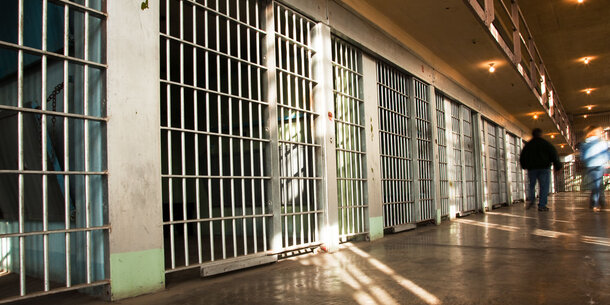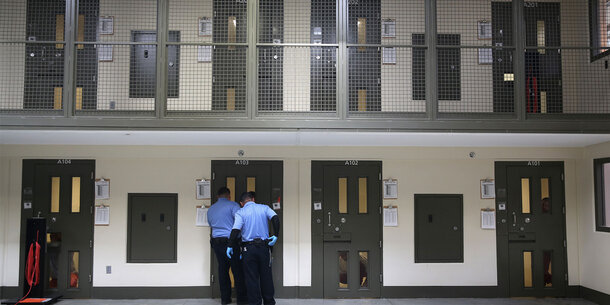Breonna Taylor, George Floyd, and Ahmaud Arbery are a few of the recent victims of the criminal justice system’s failure to honor human life — especially the lives of Black Americans and other people of color. Their deaths generated a widespread demand for systemic change.
While much of the focus has been on police, people have become more acutely aware of the immense power that prosecutors wield. As we explore how to improve the system in its entirety, prosecutors must strive to be transparent about the work that their offices do every day. They need to be accountable to their communities and ensure that everyone is being treated equally, with particular attention to whether sentences are fair or disproportionately impacting marginalized people. A primary way to do that is by adopting new ways to measure success.
Prosecutors are sworn in as ministers of justice and must lead by example. But individual prosecutors, tasked with prosecuting the case before them, often operate in a silo, and typically do not have access to information about other cases — even cases within their own offices. To make matters worse, many prosecutors have an aversion to numbers. When I was a prosecutor in Miami, my co-workers and I had a running joke: we became lawyers because we couldn’t do math.
Lawyers might not be into numbers, but we always want evidence. And when collected and analyzed properly, data provides the type of evidence that prosecutors can use to effect important changes of practice.
In most fields, there are clear metrics of success. Did you land a large client? How quickly do patients recover? What is the number of products sold this month?
By contrast, in prosecution, the metrics of success often end up reflecting the number of convictions, sentence length, or even crime rates. However, these factors do not reflect a community’s health and wellbeing. They do not tell us, for example, about community trust, support for survivors, or if outcomes are fair across racial and ethnic groups.
In trying to redefine what success in prosecution looks like in the 21st century, data is key. Prosecutors should realize that data can be your friend — and the best part is that we have already done the math for you.
In 2017, researchers from Florida International University and Loyola University of Chicago began work on what became the Prosecutorial Performance Indicators, or PPIs. The project was funded by the John D. and Catherine T. MacArthur Foundation as part of its Safety and Justice Challenge.
The result, which was launched in October of this year, is a dashboard of 55 indicators — each assessing prosecutorial progress on a monthly or quarterly basis toward achieving the three broad goals of Capacity and Efficiency, Community Safety and Wellbeing, and Fairness and Justice.
The Capacity and Efficiency goal is measured by a series of indicators including whether prosecutorial offices are reserving incarceration for serious offenders, prioritizing cases with greatest public safety returns, operating efficiently to minimize the amount of time people are incarcerated pretrial, and more. The Community Safety and Wellbeing goal is measured by prosecutorial offices’ victim support outreach, responsiveness to public record requests, engagement with economically diverse communities, and 16 other factors. Finally, Fairness and Justice can be measured by up to 19 indicators — offices may collect data detailing racial and ethnic differences in pretrial detention, diversion, case dismissal, charging, and incarceration practices, as well as data on whether low-income defendants are disproportionately punished.
The project launched in 2018 within prosecutors’ offices in four cities: Chicago, Jacksonville, Milwaukee, and Tampa. Charleston and Philadelphia joined the project this year with plans to expand researcher–prosecutor partnerships in new jurisdictions. Chicago and Milwaukee have already produced public facing dashboards based on their PPI results, and Jacksonville and Tampa will release theirs by the end of 2020 — an unprecedented move towards prosecutorial data transparency in Florida.
We envision that the tool will be a resource for communities, advocacy groups, researchers, and reporters to become informed about prosecutorial decision-making as well as case outcomes in their jurisdictions. In addition to this transparency goal, the PPIs are important office management and performance measurement tools. Our long-term goal is not only to have executive prosecutors but also mid-level managers examining monthly dashboards to understand trends, identify red flags, and implement solutions.
When disparities in sentencing or case outcomes come to light in a particular office, for example, it is critical that such developments are caught early and responded to swiftly before becoming an even greater problem. In all four of the current PPI sites, the PPI tool has identified racial disparities in diversion practices — meaning that racial and ethnic minorities are less likely to be enrolled in diversion at the outset of cases. Having identified this problem, the offices are trying to identify the root causes of the disparity — whether it could be prosecutorial discretion, exclusionary guidelines to join diversion programs, the financial cost for defendants to enter such programs, or a combination of other factors.
Every journey starts with a single step. Transformational change must start somewhere, and it will always be a process. If we are serious about transforming the criminal justice system as we emerge from Covid-19, using old habits and metrics of success aren’t going to cut it. Real-time data can help identify problems early and encourage responsive solutions, so we can implement prosecutorial practices that make a difference in the long run. Justice demands nothing less.
Melba Pearson is director of policy and programs of the Center for the Administration of Justice at Florida International University. Previously, she served as deputy director of the ACLU of Florida and as a homicide prosecutor in Miami. Pearson is also a member of Law Enforcement Leaders to Reduce Crime & Incarceration, a project of the Brennan Center.


